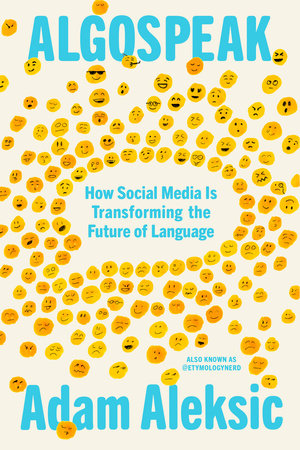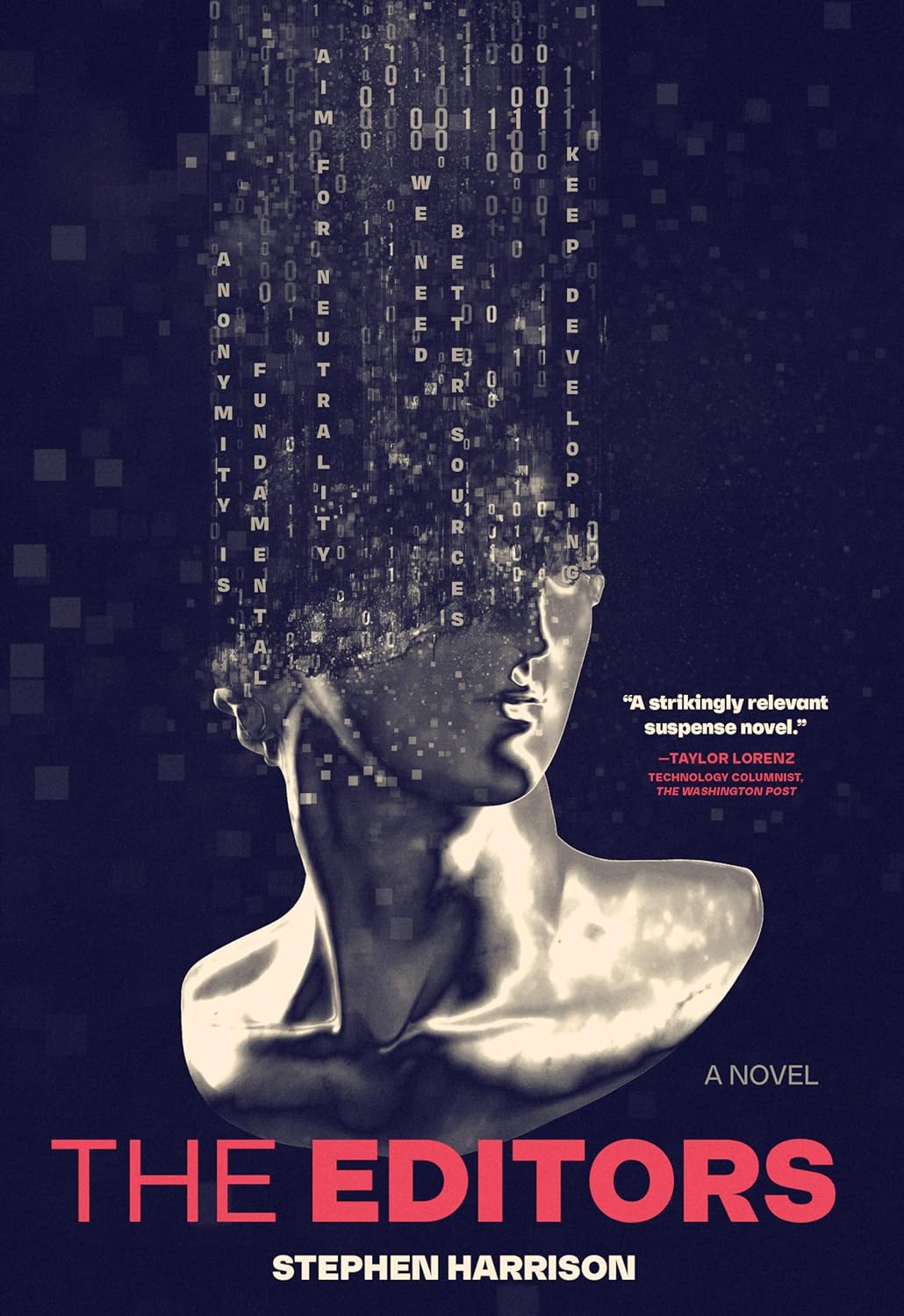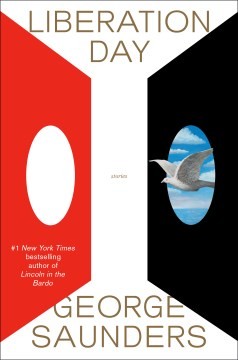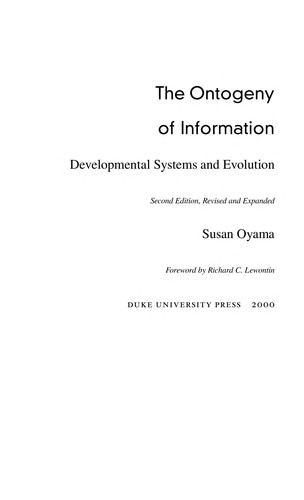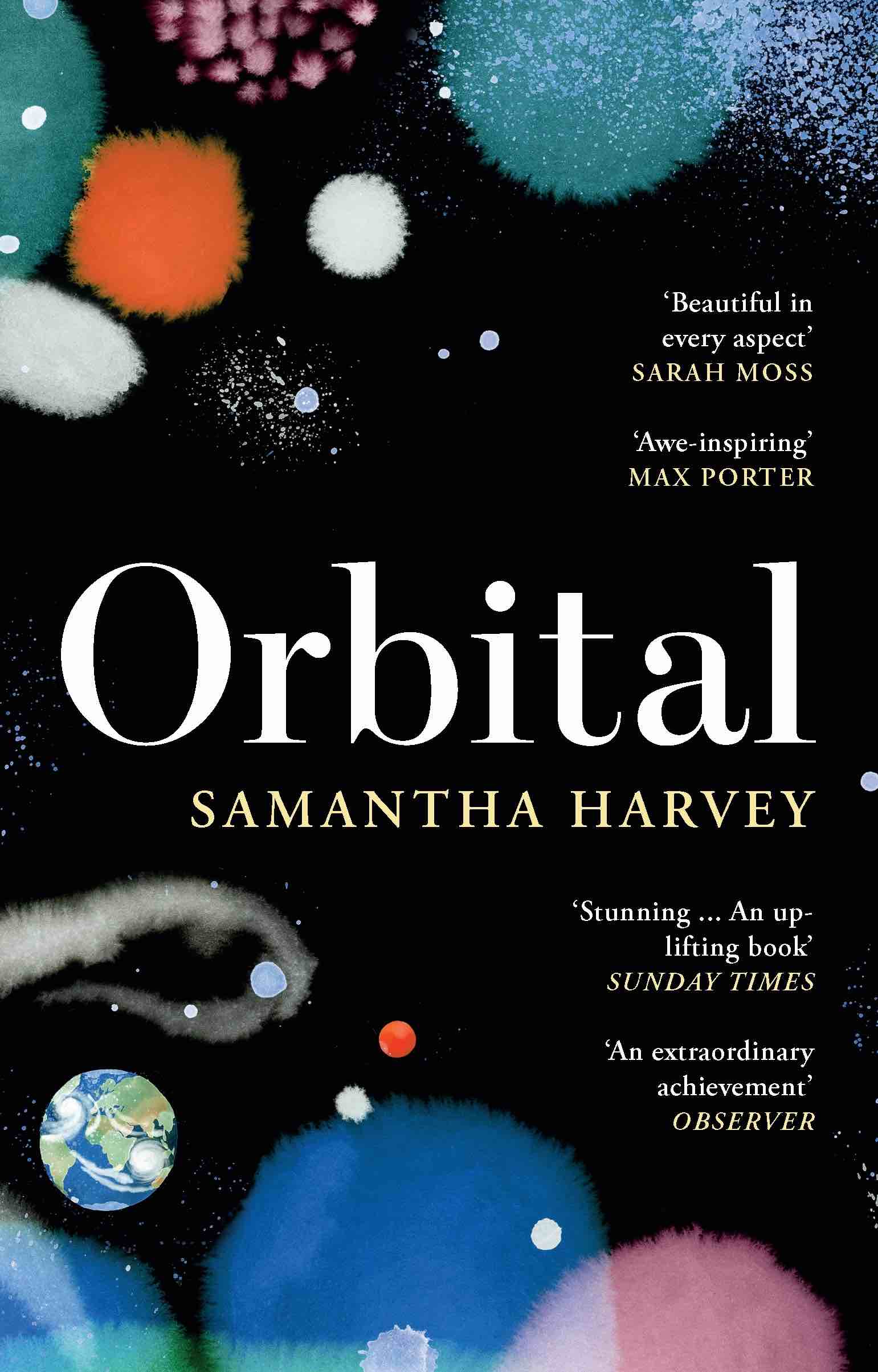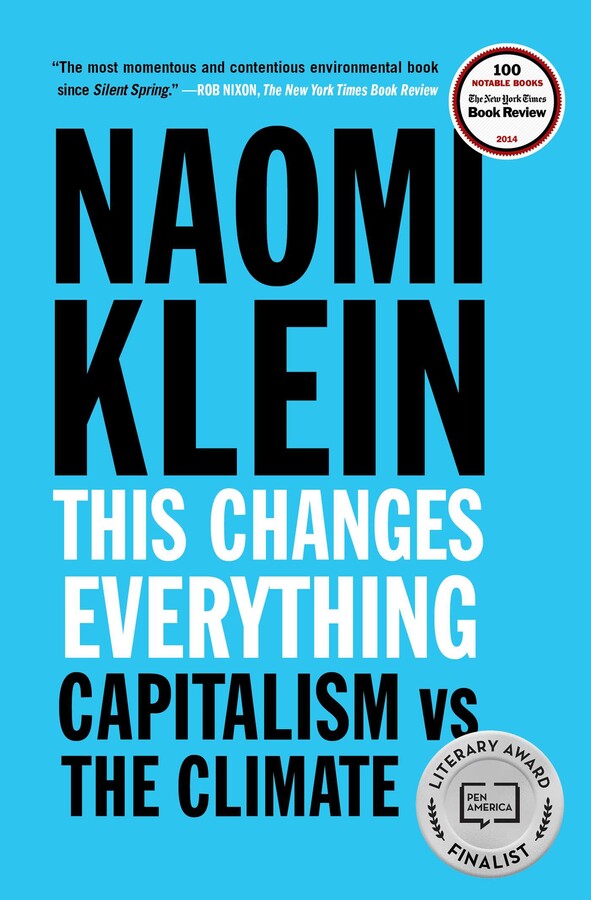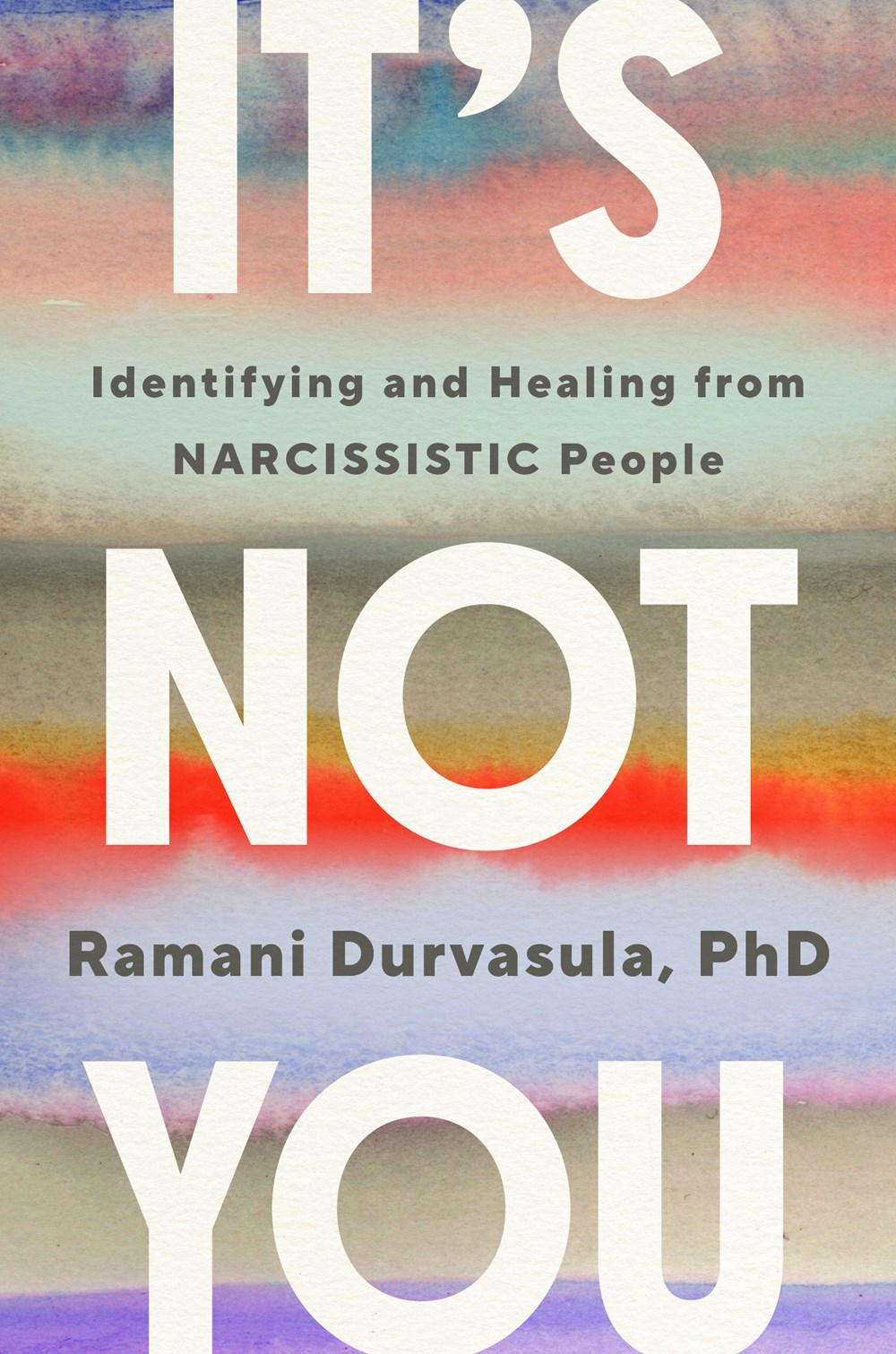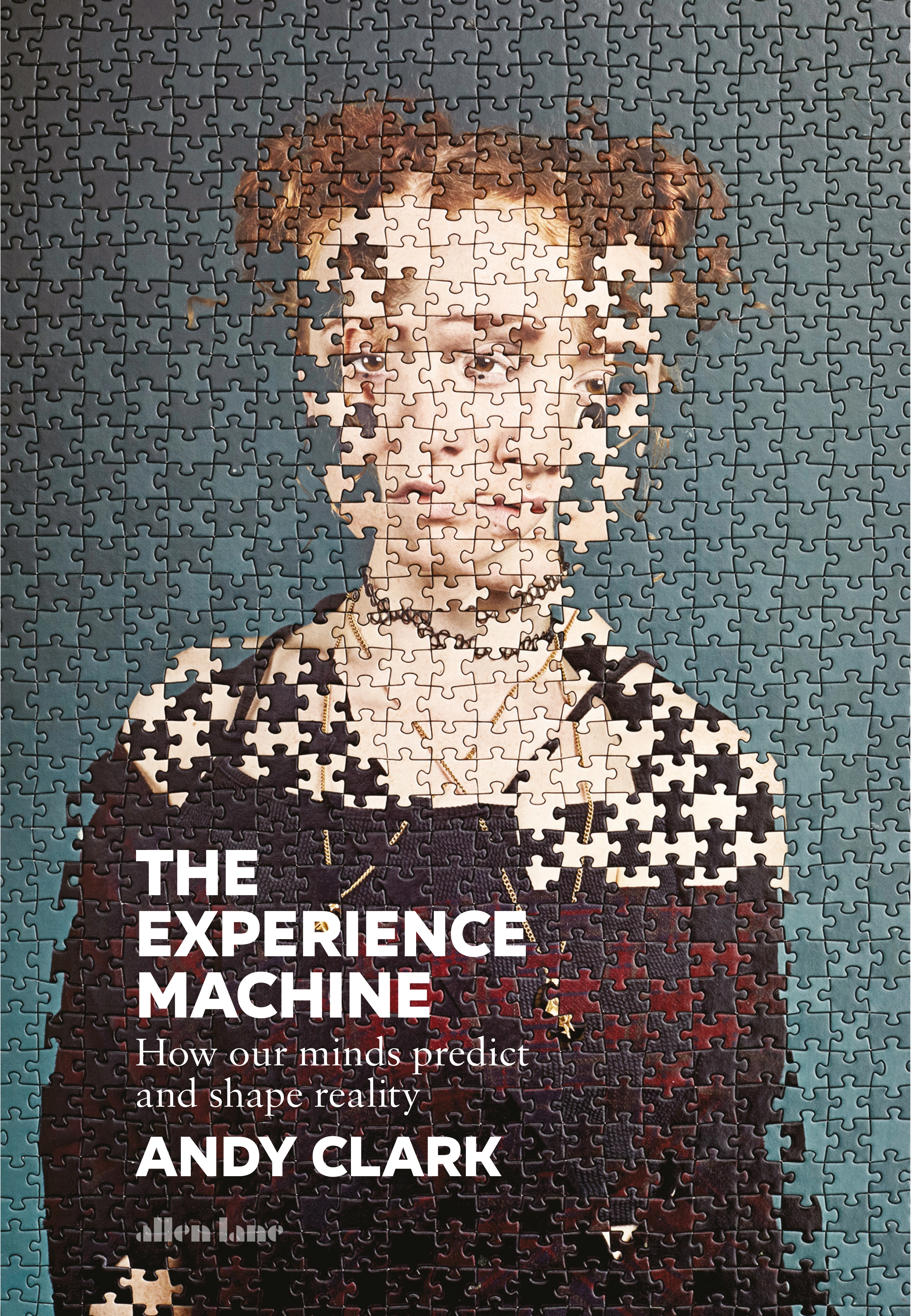Today seems as good as any day to start reading this!
User Profile
Alterego of this guy on Mastodon.
This link opens in a pop-up window
Vincent Tijms's books
User Activity
RSS feed Back
Vincent Tijms wants to read The Editors by Stephen Harrison
Vincent Tijms started reading Liberation Day by George Saunders (duplicate)
Vincent Tijms wants to read Cybernetic Revolutionaries by Eden Medina
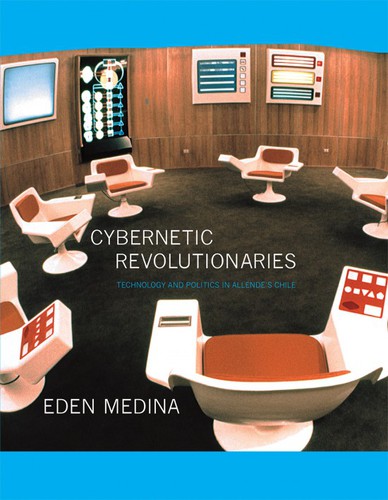
Cybernetic Revolutionaries by Eden Medina
Eden Medina tells the history of two intersecting utopian visions, one political and one technological. The first was Chile's experiment …
Vincent Tijms started reading The Ontogeny of Information by Susan Oyama
Vincent Tijms wants to read Careless People by Sarah Wynn-Williams
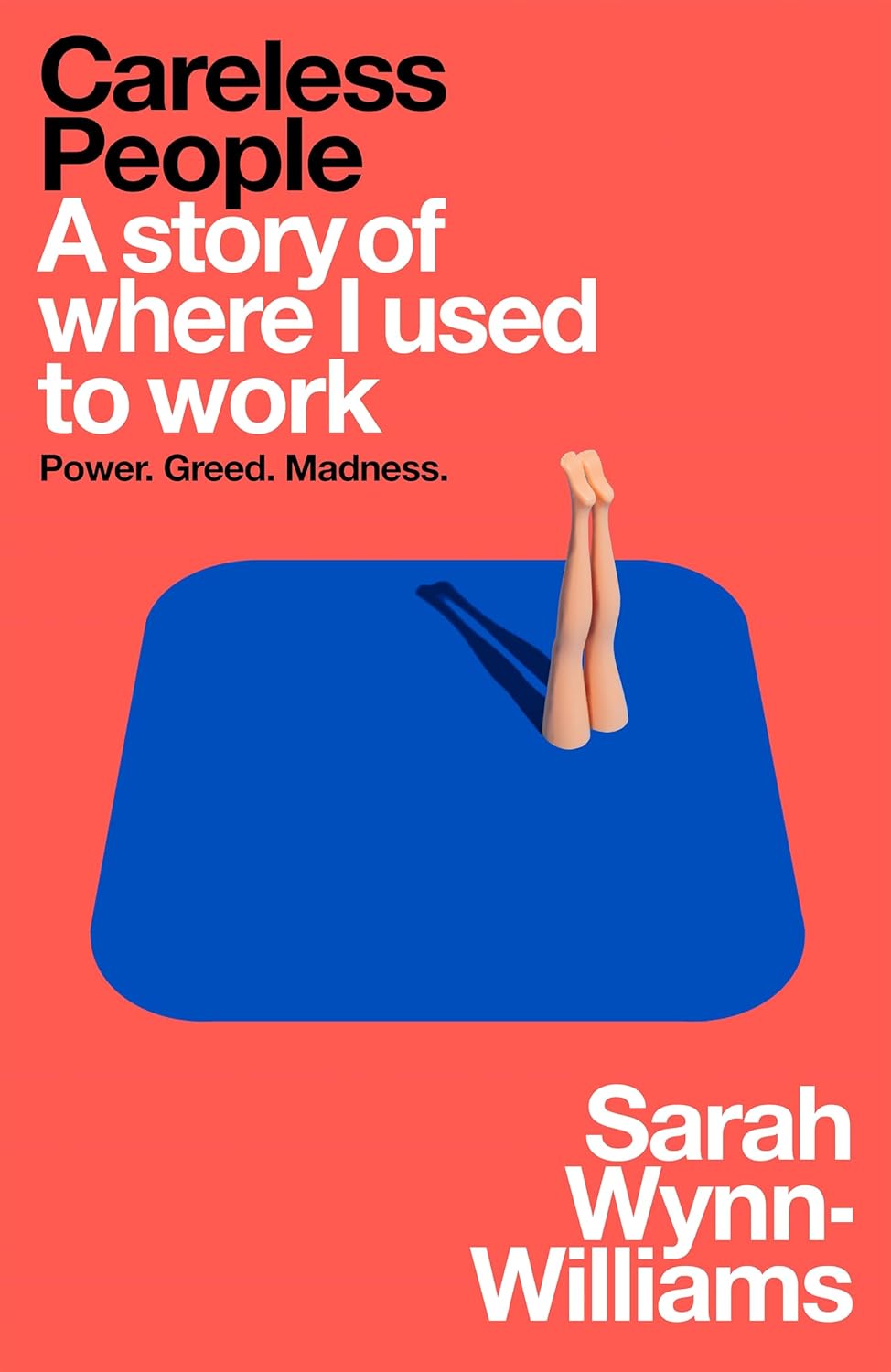
Careless People by Sarah Wynn-Williams
Sarah Wynn-Williams, a young diplomat from New Zealand, pitched for her dream job. She saw Facebook’s potential and knew it …
Vincent Tijms reviewed Orbital by Samantha Harvey
An existential reflection
5 stars
Orbital describes the cyclical journey of six astronauts, with plenty of tasks but no real destination. They are tethered to the earth, just as human behaviour is tethered to its animal roots. And while the astronauts, much like humanity itself, have professed aspirations, they are ultimately moving parts in the interconnected whole of the cosmos.
Samantha Harvey offers beautiful prose, composed of distinct but interconnected strands of thought. It might sometimes feel that style trumps substance, but I don't think that is the case -- I think form and content are entirely congruent in a set of reflections that sometimes conflict and sometimes align.
Orbital describes the cyclical journey of six astronauts, with plenty of tasks but no real destination. They are tethered to the earth, just as human behaviour is tethered to its animal roots. And while the astronauts, much like humanity itself, have professed aspirations, they are ultimately moving parts in the interconnected whole of the cosmos.
Samantha Harvey offers beautiful prose, composed of distinct but interconnected strands of thought. It might sometimes feel that style trumps substance, but I don't think that is the case -- I think form and content are entirely congruent in a set of reflections that sometimes conflict and sometimes align.
Vincent Tijms finished reading Orbital by Samantha Harvey
This has been an amazing read. The writing is beautiful and the substance offers so many philosophical reflections regarding human nature, our place in the cosmos and the fate of our world. It's also not just a bag of ponderings: there's a structure to it, but it's careful and tentative.
This has been an amazing read. The writing is beautiful and the substance offers so many philosophical reflections regarding human nature, our place in the cosmos and the fate of our world. It's also not just a bag of ponderings: there's a structure to it, but it's careful and tentative.
Vincent Tijms reviewed This Changes Everything by Naomi Klein
Most important book of the year
Originally on Goodreads (November 2014):
Probably the most important book of the year. Climate change challenges anyone's pet ideology: it makes Marxists doubt their utopian materialism, forces laissez-faire capitalists to consider the peculiarities of externalities and makes anarchists wonder whether mutualist instincts are strong enough to deal with invisible, delayed forms of exploitation.
Klein argues for a planned economy, but like most contemporary socialists she subscribes to a rather anarchic, decentralized system to uphold norms like carbon emissions and tax fossil fuel burners. The details are sketchy - Klein unfortunately prefers a sophomoric discussion of Baconian thought to an in-depth look at how you can empower the State without reinforcing clientelism - but the general idea makes sense.
If anything, Klein conveys the urgency of the climate challenge. Right-wing populism has ensured that we are already too late and that environmental disasters are much worse than they …
Originally on Goodreads (November 2014):
Probably the most important book of the year. Climate change challenges anyone's pet ideology: it makes Marxists doubt their utopian materialism, forces laissez-faire capitalists to consider the peculiarities of externalities and makes anarchists wonder whether mutualist instincts are strong enough to deal with invisible, delayed forms of exploitation.
Klein argues for a planned economy, but like most contemporary socialists she subscribes to a rather anarchic, decentralized system to uphold norms like carbon emissions and tax fossil fuel burners. The details are sketchy - Klein unfortunately prefers a sophomoric discussion of Baconian thought to an in-depth look at how you can empower the State without reinforcing clientelism - but the general idea makes sense.
If anything, Klein conveys the urgency of the climate challenge. Right-wing populism has ensured that we are already too late and that environmental disasters are much worse than they could have been. If your political flavor of choice does not prevent worsening of the current situation, you might just as well throw it out of the window.
Vincent Tijms started reading Orbital by Samantha Harvey

Orbital by Samantha Harvey
A team of astronauts in the International Space Station collect meteorological data, conduct scientific experiments and test the limits of …
Vincent Tijms reviewed Experience Machine by Andy Clark
Review of 'Experience Machine' on 'Goodreads'
3 stars
It's a well-written introduction into predictive processing as a key feature of human cognition. This is a framework that got me very excited in the early 2010s and I still believe it offers very deep insights into what cognition is (and more speculatively, how it probably arose).
Yet in the end the book did not do much more for me than provide an entertaining read. If you want a crash course on the predictive mind (with some excursions into the extended mind), then do pick up this book. If you're already relatively informed about the topic, there may not be enough on display here.
It's a well-written introduction into predictive processing as a key feature of human cognition. This is a framework that got me very excited in the early 2010s and I still believe it offers very deep insights into what cognition is (and more speculatively, how it probably arose).
Yet in the end the book did not do much more for me than provide an entertaining read. If you want a crash course on the predictive mind (with some excursions into the extended mind), then do pick up this book. If you're already relatively informed about the topic, there may not be enough on display here.
Vincent Tijms reviewed It's Not You by Ramani Durvasula
Review of "It's Not You" on 'Goodreads'
4 stars
The great thing about It's Not You is that it manages to pull off two very difficult, even problematic things. First, it's a self-help book about a psychologically heavy topic. Replacing a therapist by a book is risky, as it cannot create the dynamics that therapist and client have and while it might be the best option for those who have no access to therapy, it can keep away others from more sensitive, tailor-suited help.
Secondly, that aforementioned heavy topic is recovery from abuse by people with narcissistic personality disorder (NPD) and adjacent behaviours. As rare as this diagnosis is in clinical practice (there's even been an effort to remove it from the DSM entirely), it has become a very popular label in online spaces, leading to both increased awareness and misuse of the construct.
There's therefore a lot that could have gone wrong with this self-help book on dealing …
The great thing about It's Not You is that it manages to pull off two very difficult, even problematic things. First, it's a self-help book about a psychologically heavy topic. Replacing a therapist by a book is risky, as it cannot create the dynamics that therapist and client have and while it might be the best option for those who have no access to therapy, it can keep away others from more sensitive, tailor-suited help.
Secondly, that aforementioned heavy topic is recovery from abuse by people with narcissistic personality disorder (NPD) and adjacent behaviours. As rare as this diagnosis is in clinical practice (there's even been an effort to remove it from the DSM entirely), it has become a very popular label in online spaces, leading to both increased awareness and misuse of the construct.
There's therefore a lot that could have gone wrong with this self-help book on dealing with NPD, but it didn't. The expertise of Durvasula shines through in its illustrative case studies and clear categorisations, but mostly the book benefits from the fact that it's about the people who suffered the abuse. This means that any point about whether the narcissistic label is correct or not is moot. If you're trying to recover from emotional abuse, if your sense of self has been broken down by rage fits, gaslighting, persistent criticism and other manipulative tactics, it doesn't really matter whether NPD is a valid diagnostic construct and how it applies to your particular abuser. What's important is how to deal with the psychological fallout of such abuse.
Durvasula shows that there's clear patterns to recovery from such abuse. The main point she drives home is the title of the book: if you experienced narcissistic abuse you tend to blame yourself (but it's not you) and you tend to identify with the person you've become during the abuse (but it's not you). The way out is to change these beliefs, which is a difficult and slow process. The best way to do it is to fully remove the abuser from your life, but Durvasula recognises this is not always possible and that some people will need to balance their own recovery with coping strategies to handle the close vicinity of those who abused them.
What I found especially interesting is that Durvasula does not address belief change as some sort of cognitive behavioural therapy. She rather emphasises the key role of emotions in processing the abuse and finding a proper sense of self. While I am personally not on board with talk about "authentic selves", the argument that maladaptive thought patterns are best broken down by prioritising feelings and impulses is convincing (and interesting in its own right, outside of the scope of this book). The book contains several exercises that target both cognitive and emotional processes and that are geared towards defining oneself outside of the abusive relationship.
My only issue with the book is that while Durvasula obviously embraces a relational approach to psychology, leaving behind the individualism that plagued clinical psychology, here she still tends to reduce these relations to single, dyadic ones in her proposal of radical acceptance. That proposal in itself is fine - you will need to accept that an abuser will not change, since not accepting that is what actually gives more openings to the abuse - but it skips over the complexity of real, systemic relations. Especially in the case of NPD or high trait narcissism, the abuser is likely embedded in the victim's social or even familial network and might even be considered a kind, charismatic figure there. This means that protecting yourself against such a person is not enough-- either because the abuser starts targeting loved ones as new victims, or starts using them as tools for further abuse. Durvasula knows this all too well and has addressed it elsewhere, but in It's Not You these systemic difficulties are not given a lot of attention, although they are likely to interfere with advice such as reclaiming an identity and finding belonging.
That criticism aside, this is a great book for anyone interested in recovery from destructive emotional abuse, or who is struggling with the self-blame and identity crisis that can follow prolonged abuse.
Vincent Tijms started reading Morphotrophic by Greg Egan
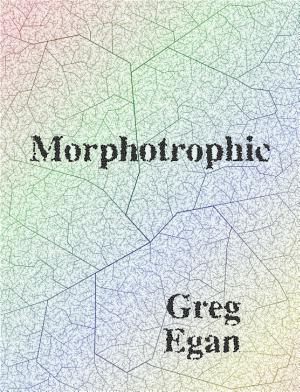
Morphotrophic by Greg Egan
In a world where the cells that make up our bodies are not committed to any one organism, Marla is …
Vincent Tijms finished reading The Unaccountability Machine by Dan Davies
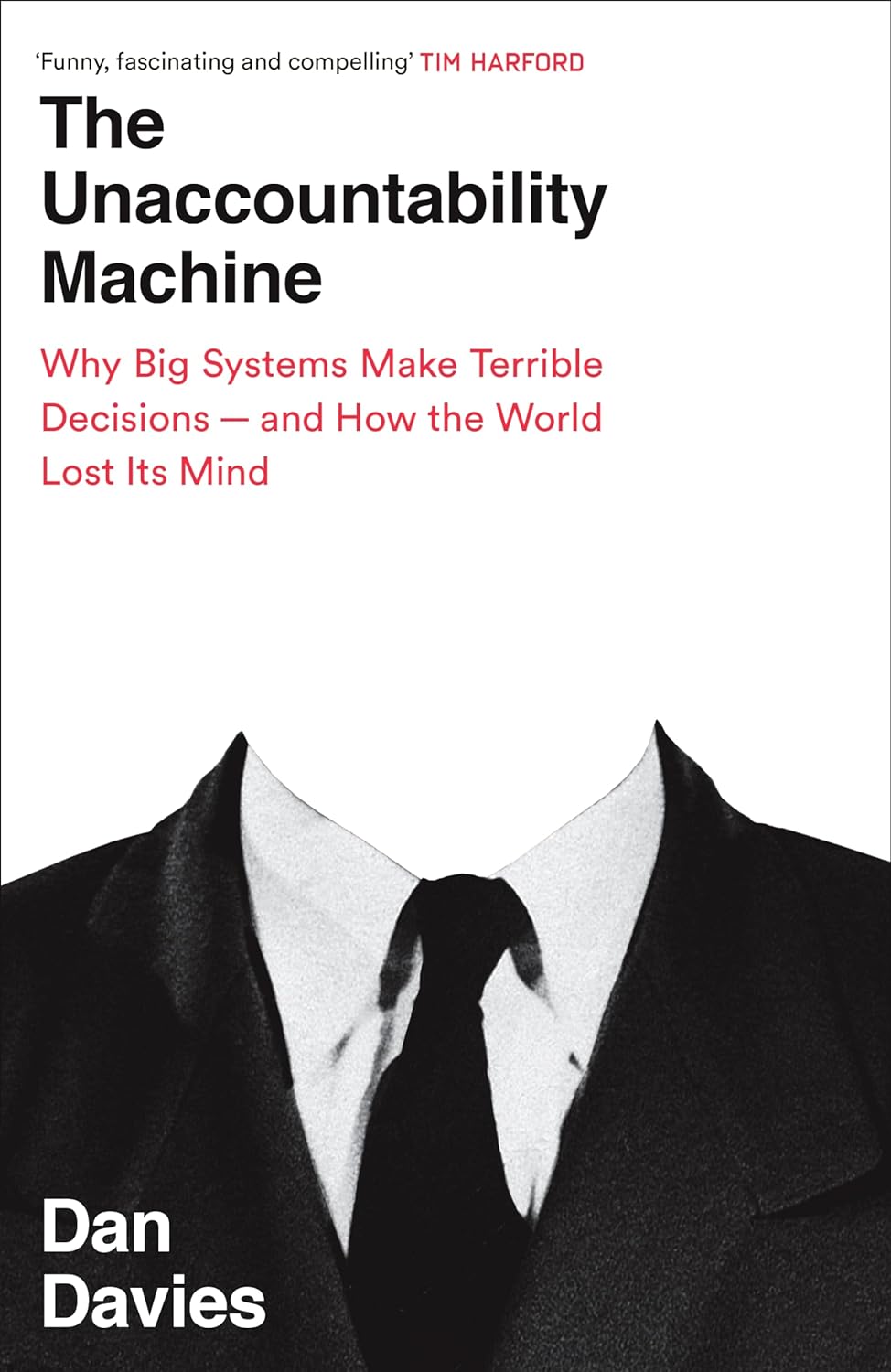
The Unaccountability Machine by Dan Davies
Part-biography, part-political thriller, The Unaccountability Machine is a rousing exposé of how management failures lead organisations to make catastrophic errors.
…Vincent Tijms started reading The Unaccountability Machine by Dan Davies

The Unaccountability Machine by Dan Davies
Part-biography, part-political thriller, The Unaccountability Machine is a rousing exposé of how management failures lead organisations to make catastrophic errors.
…